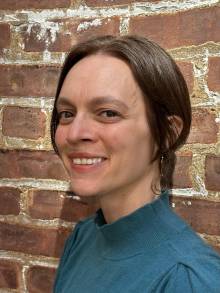Anne Montesano
MPA in Public & Nonprofit Management & Policy
-
2009

Can you tell us a bit about your job responsibilities?
I work for Results For America (RFA), a national nonprofit that helps all levels of government use data and evidence to drive decisions and policymaking in order to advance economic mobility and racial equity. RFA's mission is to make investing in what works the new normal. RFA wants governments to invest in the programs and policies that advance economic mobility in order to shift funding to program models with a track record of success. RFA identifies the programs and policies that advance mobility and racial equity, and provides technical assistance and implementation support to government partners to replicate and scale effective approaches. Within RFA, I lead a new unit called the Rapid Response Unit, which is a team of in-house consultants that helps RFA teams advance high-priority projects. The Rapid Response Unit adds capacity to other teams to help them execute urgent projects that advance the organization's goals. We are internal-facing, so we get to support a lot of the incredible work that RFA is doing.
What impact do you hope to make through your career and/or organization?
Throughout my career I've wanted to play a role in solving problems and addressing structural inequities. I've done that in different ways. Right after college, I worked for a community-based organization in Los Angeles that provided direct services to immigrants. I wanted to focus on systemic change, so I joined an advocacy organization in D.C. that was lobbying for comprehensive immigration reform and the DREAM Act. I decided to go to graduate school because I wanted a different kind of skill-set and tools to address systemic inequities. While in school, I worked for a foundation that provided grants to organizations promoting immigrant rights and civic engagement. After graduating, I worked for the City of New York for 13 years. I served in a variety of roles at different agencies under three different mayoral administrations. At the Mayor's Office of Immigrant Affairs, I led a team that supported efforts to improve language access and provided technical assistance to City agencies so that they could communicate effectively with New Yorkers who speak languages other than English. A consistent thread throughout my journey has been to try and figure out where I can make an impact. RFA is working on systems-wide change. The work I’m doing now is different from the policy implementation I was doing within NYC government, but all of my work over the years has involved looking at structural inequities from different angles and figuring out, in whatever role I had, how do you best solve those problems?
What were you doing before you came to NYU Wagner?
I worked at an incredible community-based organization called the Central American Resource Center in Los Angeles (CARECEN), which was founded by Salvadoran refugees fleeing the country's civil war in the 1980s. CARECEN is a multi-service agency supporting the Central American community living in Los Angeles. In my role, I provided legal immigration services, supported the organization's civic engagement efforts, and tutored youth who attended after-school programs. Through my work there, I gained a lot of experience providing direct services. The organization was intentional about not only providing direct services but mobilizing community members to be civically engaged and affect policy by advocating for legislative solutions that address critical needs. From my amazing colleagues at CARECEN, I learned how you build off of the direct service work an organization is doing and use it to engage community members to then advocate for systemic solutions. Their dual approach sparked my interest in zooming out and trying to create policy and systems-wide change. I felt that NYU Wagner’s Master of Public Administration program would help me build skills to ground some of that work, so that I could be more effective in whatever role I chose to play.
How did your experiences at NYU Wagner prepare you for your career?
NYU Wagner provided me with a solid foundation for pursuing a career in the public sector. Classes in economics, policy, management, and statistics gave me important skills, tools, and knowledge and helped refine my thinking. Even though I don't use statistics in my day-to-day work now, the classes I took with Professor Ingrid Gould Ellen, where we had to read complicated research and policy articles and challenge some of the assumptions or the research methods, stand out in my memory even today. A class like that provides a skill-set for how you question the information that you're presented with, which is invaluable. Prior to attending NYU Wagner, I never thought I would work for the government. I was certain I would continue in the nonprofit sector. But studying at NYU Wagner, where so many professors and students worked for the NYC government and were excited about it, really opened up the possibility of working for NYC government for me. Immediately after graduation, I joined the NYC Mayor’s 2010 Census Office, which developed and implemented strategies to improve the Census response rate in communities that had historically been undercounted. If I hadn't gone to a graduate school that had such a focus on local government and highlighted the impact you can make in local government, I think my trajectory would have been very different.
What advice would you give to current Wagner students?
Explore opportunities in different sectors, organizations, and roles because gaining diverse experiences can only help improve your effectiveness wherever you are. If you just do one type of work, it may limit how you're thinking about solutions. Moving around and doing substantive work in different sectors, organizations, and roles can inform how you create and advocate for systemic change.
Credits: Interview conducted in December 2023 by Kayla M. Foster, an MPA-PNP 2025 student at NYU Wagner.